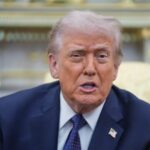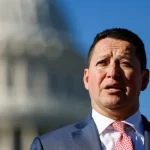
The Second Continental Congress voted to approve the U.S. Declaration of Independence on July 4, 1776.
Some former colonists — now citizens — could not wait an entire year to celebrate, albeit in a somewhat morbid way.
In the summer of 1776, Americans held mock funerals for King George III of Great Britain, their former sovereign whom the Declaration of Independence labeled a tyrant.
The mock funerals represented a dramatic change in more ways than one.
First, as subjects in the British Empire, American colonists had grown accustomed to celebrating the king’s birthday each year.
George III turned 38 years old on June 4, 1776, though few Americans felt like celebrating their king in that summer of war.
Instead, they decided to bury their allegiance.
Secondly, mock funerals for King George III amounted to a dramatic reversal of American sentiment toward the man himself.
George III ascended to the British throne in 1760 at the age of 22. One year earlier, British and colonial forces had defeated the French and their Indian allies at the Battle of Quebec, the most important battle in the North American phase of the Seven Years’ War, which lasted from 1756-63.
American colonists thus responded to their new monarch with patriotic enthusiasm. A youthful king seemed a fitting symbol for a triumphant empire with a glorious future.
No one could have predicted that a revolution would change everything in a mere 16 years.
Finally — and most important of all — when Americans held mock funerals in the summer of 1776, they buried more than their allegiance to George III. They buried the monarchy itself.
This was the unlikeliest development of all.
If one reads only the text of the Declaration of Independence, one would assume that colonists had focused their grievances on the monarchy. This would be a false assumption.
In fact, colonial pamphleteers had complained not about the monarchy, but about an intrusive Parliament. From the 1765 Stamp Act onward, colonists argued that Parliament had no authority on American soil.
Ironically, colonial leaders long held out hope that the king would intervene on their behalf.
This hope stemmed from their constitutional understanding of the British Empire. According to the American view, each colonial legislature amounted to a little Parliament comprised of representatives who made laws for the people of the colony.
Only the monarchy held the different parts of the empire together.
Do you celebrate July 4th?
Yes: 92% (23 Votes)
No: 8% (2 Votes)
The Declaration of Independence charged King George III with tyranny not because Americans had long since rejected monarchy, but because they had placed their faith in it.
When Thomas Jefferson wrote the Declaration, he could not effectively address it to Parliament because Americans did not recognize Parliament’s authority over them.
They recognized the king. They pleaded with the king for assistance. When the king sided with Parliament, Americans regarded it as a betrayal.
If Americans wished to bury their colonial past, therefore, they could not bury a Parliament to which they paid no allegiance.
They could only bury a king to whom they once did.






